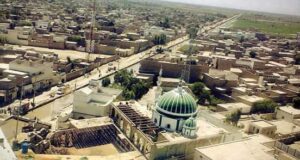Quetta, the provincial capital of Balochistan, has been denied facilities of a decent public transport service which has resulted in many implications of intricate kind not only for the public but also for the masses. The current public transport services in Quetta, lamentably, are in utter poor conditions which attract no commuters and create more problems for the masses than benefits. The current services in the city, in fact, are characterized by untrained staff, buses in pathetic conditions, archaic models, no online ticketing services, suffocation and no care for persons with disabilities, women and senior citizens. Therefore, anyone in the city, even if belonging to the lower middle class, prefers to buy at least a bike or any other means of personnel conveyance rather than using the public transport services to reach their destinations, such as offices, schools, and businesses.
This sorry state of affairs has generated many problems for the people of this city. Traffic congestions are a now common sight in the city with small and narrow passages, thoroughfares and roads. Moreover, they have also create problems for the women, especially, who prefer to travel by rickshaws increasing the cost of travelling within the city in absence of tramways. Worst of all, this city of almost 3 million people does not have traffic signals at any of the junctions, snowballing the challenge of managing unruly traffic for the traffic wardens.
Quetta Mass Transit Train Project was in pipeline but there doesn’t seem any practical progress on the matter to provide the masses a respite of relief. Projects like metro-buses, trams, monorails, paratransit services for the senior citizens and people with disabilities seem totally alien ideas to the provincial and local self-government apparatus in the province.
By denying a decent public transport system to the people of this city, the rulers are not only creating problems for themselves but also augmenting economic, social, and environmental problems for the people. To elaborate, public transport plays an important role in minimizing the cost of congestion and maximizing economic productivity. It provides equality of access to employment and civic services, increased social cohesion and decreased isolation among social strata of the society. Additionally, by providing an alternate decent means of travelling to the private vehicles, public transport has a critical role to play in reducing carbon emissions in the atmosphere, keeping the air clean and reducing health risks for the masses. All these benefits can only be accrued if public transport services are paid serious attention by the provincial government.
It is, therefore, suggested that the government should encourage investment in public transport by potential contenders to reduce the burden of economic, social and environmental issues on Quetta and provide a citizen an opportunity of decent travel within their means.
Published in The Balochistan Point on August 9, 2017
 Balochistan Point Voice of Nation
Balochistan Point Voice of Nation




